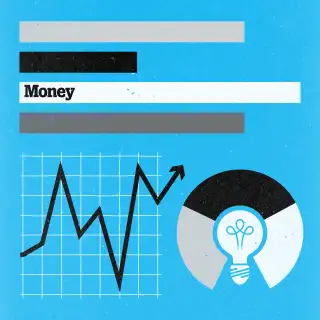When You Do—and Don't—Need a Pro to Manage Your Money

Q: “At what net worth should I consider getting a money manager?”
A: There is no magic number for when you need help. Similarly, you don’t have to wait for your net worth to hit a certain mark to seek out the services of a pro.
“As soon as you have enough money that it’s keeping you up at night wondering what to do, then that may be when you need to find some help," says Deena Katz, a certified financial adviser and associate professor of personal financial planning at Texas Tech University. "But that number will be different for everyone. Some people will feel it at $100,000, others at a million.”
Determining whether you need a money manager basically boils down to the questions you have about your money and whether you’re able to find the answers yourself and then follow through.
If your financial situation is complex—say you also manage your small business—or if you simply don’t have the time to dedicate to understanding and managing your own investments, paying an adviser to help you look after your funds could be worthwhile, says Christine Benz, director of personal finance at Morningstar.
You may also want to get investment help if you’re paralyzed by fear or know you’re prone to chasing hot funds, panic selling, or overreacting to market swings. A pro can act as a coach and help you keep your emotions in check, says Benz.
On-going money management can be costly, though. You'll typically pay an annual fee equal to 1% to 1.5% of your total assets under management. And many wealth advisers won't take on you as a client unless you have a minimum amount of money to invest, typically a quarter to half a million dollars.
Help just when you need it
Luckily, you probably don't need investment guidance on a continual basis. Most of us are fine DIY-ing it the majority of the time—using simple online asset allocation tools such as Bankrate's and sticking with broadly diversified stock and bond index funds—and getting an expert second opinion only when we’re getting started or making a big change.
In that case, you can find a financial planner who charges by the hour or per project. “If you do need more long-term help than these advisers are likely to be able to provide, in my experience they’ve always been quick to refer clients to money managers who can,” says Benz. “It’s a good first step to getting a read on how much help you may need.”
For help finding an adviser who charges an hourly or project-based rate, search the Financial Planning Association website or the Garrett Planning Network's website.
Help that won't cost you much
If you don't want to go it alone but want some investment guidance, you have several options, even if you don't have a big portfolio. One is to keep your money in a low-cost target-date retirement fund, where the manager will adjust your investment mix based on the retirement date you select.
For a more tailored approach, another low-cost route is a “robo-adviser,” says Sheryl Garrett, a certified financial planner and founder of the Garrett Planning Network. Companies like Wealthfront and Betterment offer portfolio advice that's somewhat personalized via the web and apps. The firms use software to come up with a stock and bond mix based on your investing goal and time horizon. They then put you into low-cost ETFs and rebalance regularly. Annual fees typically run from 0.15% to 0.35% of assets, on top of ETF charges.
Finally, Vanguard has a pilot program called Personal Advisor Services, which charges 0.3% of assets a year for investment management. You must have $100,000 in Vanguard accounts to qualify; the fund company plans to drop that minimum to $50,000 in the near future.